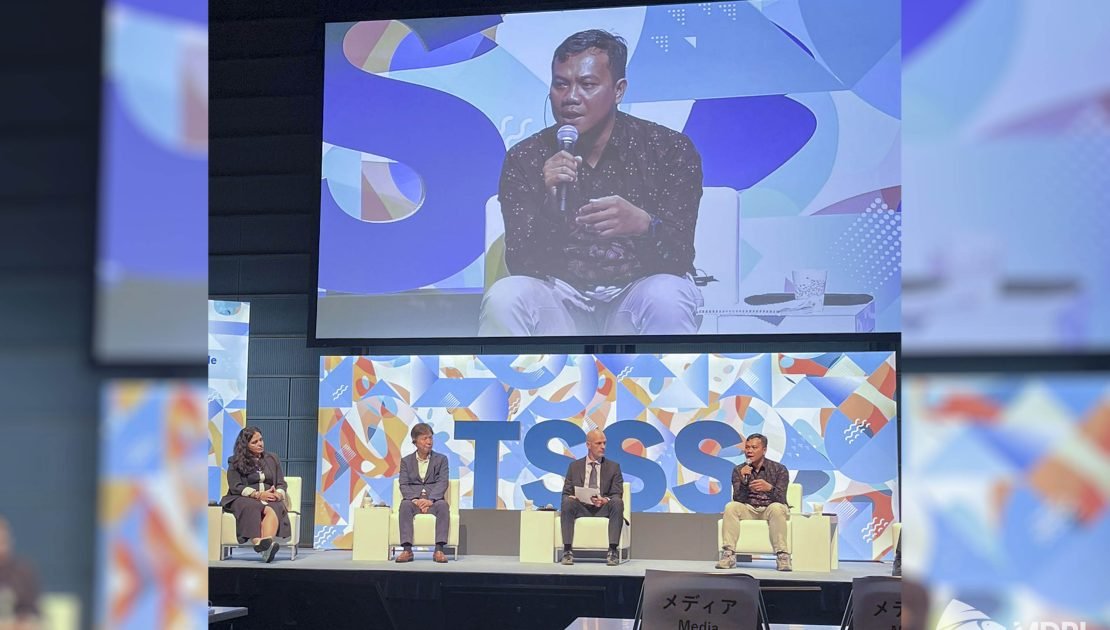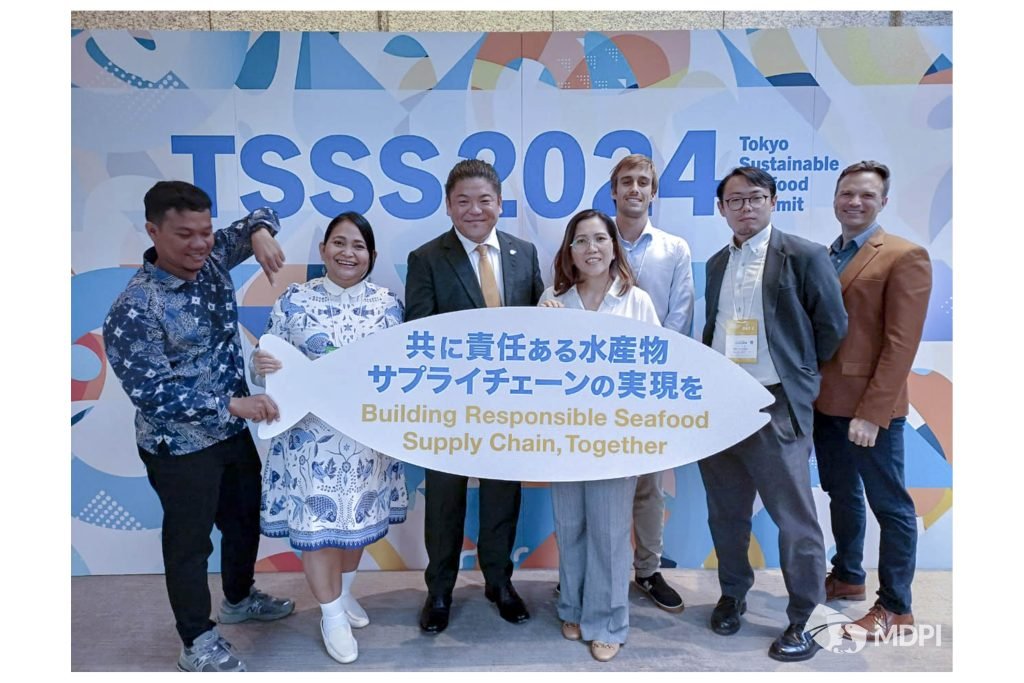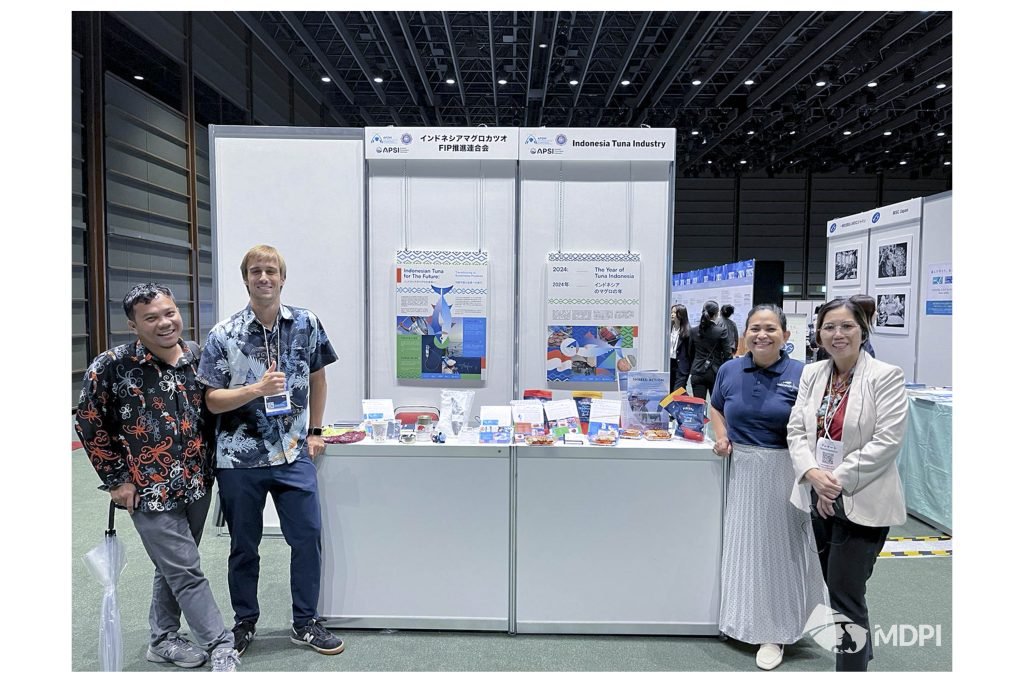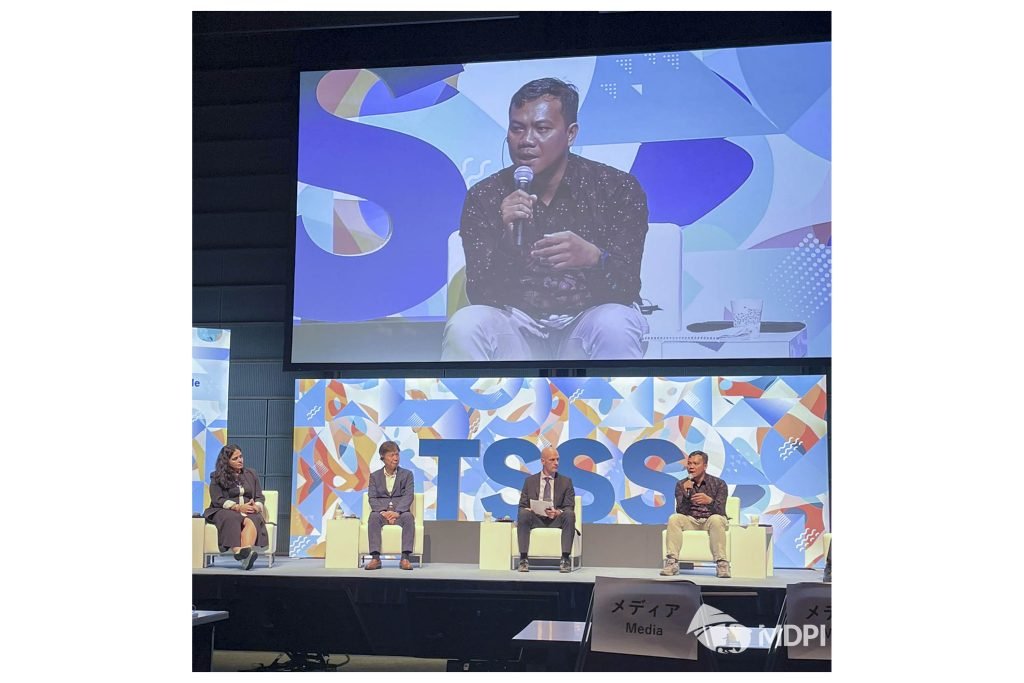
by Muhammad Alzaki Tristi
“I always imagine how small-scale fishers can continue fishing while their voices are heard by the government. This is crucial for fisheries management policies to become adaptable and practical for their needs.” – Putra Satria Timur, Fisheries Lead, MDPI
At the 2024 Tokyo Sustainable Seafood Summit (TSSS), one of Asia’s largest forums for sustainable seafood, Indonesia’s MDPI (Marine Change Development Indonesia) made waves with its commitment to uplifting small-scale fishers and promoting sustainable practices.
Putra Satria Timur, MDPI’s Fisheries Lead, presented the organization’s approach to developing inclusive, market-based models that support Indonesia’s small-scale fishers and coastal communities. Timur’s address at TSSS, held on 8th October, came as international focus intensifies on sustainable fisheries. Established in 2015, TSSS draws experts, NGOs, and buyers from around the world.
This year, Timur emphasized the pivotal role of small-scale fishers in ensuring a sustainable future for seafood, stressing MDPI’s efforts to promote legal, traceable, and regulated fisheries practices that meet both local and international standards.

Q: Timur, why is MDPI’s participation in the Tokyo Sustainable Seafood Summit important?
Timur: “The TSSS 2024 is an excellent opportunity to showcase how MDPI has been working with small-scale fishers in ensuring sustainable seafood products.
This summit isn’t only attended by NGOs and practitioners from various countries; buyers were also present. This offers us a chance to open market access for fishery products from Indonesian small-scale fishers supported by MDPI.”
Q: What role does MDPI play in advancing sustainable fisheries in Indonesia?
The challenge, however, is the high cost of data collection. Since 2014, MDPI has spent significantly on consistent data collection. But if funding becomes unavailable, a long-term strategy is needed. Through this “community-based data collection” approach, we hope fishers can actively and independently record data by completing catch logbooks.”

Q: How does MDPI balance environmental sustainability with the needs of fishing communities?
Timur: “There are certainly many challenges, depending on the perspective. From the fishers’ side, many small-scale fishers don’t understand the concept of sustainable fisheries due to limited access to information, knowledge, regulations, and so forth.
Another challenge is building trust. Many small-scale fishers feel disappointed due to past bad experiences with irresponsible parties who made promises or short-term commitments that weren’t properly fulfilled. This presents a major challenge for us in the field.
One approach MDPI has taken to address these challenges is to build fishers’ capacity in organizing through fisher groups, creating champions at the fisher and coastal community levels, strengthening small-scale fishers’ economies through business units, and initiating the Fisheries Co-Management Committee (FCMC) forum.
The FCMC brings together small-scale fishers with various stakeholders like the government, businesspeople, academics, and researchers. Here, they can discuss, share views, and tackle issues, ultimately creating joint solutions to face the challenges at hand.”
Q: Can you explain MDPI’s inclusive, market-based practices and their benefits?
Timur: “We assist fishers in obtaining ecolabel certifications, particularly Fair Trade USA for now, by meeting specific standards. The standards demand small-scale fishers implement sustainable and responsible fisheries practices. Meeting these market standards ultimately leads to long-term sustainable fisheries that protect fishers’ livelihoods.
In the short term, Fair Trade USA-certified fishers also benefit from the Premium Fund. Fishers can utilize the fund to improve the livelihoods of their coastal communities. This is a key point MDPI advocates for small-scale fishers.
Markets also increasingly demand traceable seafood products. Through our social enterprise PT Sahabat Laut Lestari, MDPI has developed the TraceTales app to digitize fisher catch results. This app allows industries and consumers to trace the product’s origin, which ultimately benefits small fishers.”
Q: What message did you share about Indonesian fisheries and sustainability?
Timur: “Our message at this summit was, “Let’s pay attention to small-scale fishers, especially those proven to practice sustainable fishing.” They often face limited access in various aspects, so it’s important to include them as subjects, not objects.
We encourage the audience, especially buyers, to prioritize social responsibility for small-scale fishers who practice sustainable and responsible fishing. It can be a long-term investment that will protect the market’s business and strengthen small-scale fishers’ economies.
Q: What is your vision for sustainable fisheries in Indonesia?
Timur: “I always envision how small-scale fishers can continue catching fish and have their voices heard by the government. This is crucial for making fisheries management policies applicable to their needs. Ideally, fishers would be involved in decision-making about policies directly impacting them.
It is also ideal if we have an interconnected traceability system from fishers, suppliers, to consumers. This is a form of transparency about the fish we enjoy on our plates.”

Q: What was most memorable about participating in this summit?
Timur: “It was certainly an intense, nerve-wracking experience speaking before 500 participants from various sectors like the Japanese government, businesspeople, and international NGOs. However, we are happy to interchange perspectives in sustainable fisheries, particularly about small-scale tuna fisheries.
This was a collaborative work. It’s the result of extraordinary synergy from the entire MDPI team, especially for small-scale fishers in Indonesia, with the support of the government.
Timur’s participation in the Tokyo Sustainable Seafood Summit highlights MDPI’s commitment to promoting sustainable fisheries, not only in Indonesia but also globally. His insights remind us of the importance of cross-sector collaboration in creating market-based solutions that benefit communities and the environment.
For more on the TSSS 2024 event, read the summary on Japan’s Minato Yamaguchi: https://www.minato-yamaguchi.co.jp/minato/e-minato/articles/146857
Buku ini disusun untuk mempermudah identifikasi spesies hewan ERS dan ETP yang
berinteraksi dengan nelayan selama aktivitas penangkapan tuna berlangsung. Semua
sumber ilustrasi gambar dan informasi pada buku ini telah dicantumkan pada daftar
referensi.
Kisah dari kampung nelayan kecil di 5 provinsi (NTB, Sulawesi Selatan, Sulawesi Utara, Maluku, Maluku Utara) diceritakan oleh masyarakat dampingan dan para pendamping MDPI. Mimpi besar untuk menjangkau lebih luas masyarakat pesisir dengan berupaya pada peningkatan kesejahteraan nelayan kecil melalui pengembangan kapasitas, membangun kemandirian, dan ketahanan ekonomi serta memperkuat institusi lokal demi mendukung perikanan berkelanjutan. Banyak pengalaman inspiratif, cerita sukses, kendala, kritikan, rasa bangga dan haru bercampur aduk dikisahkan dalam buku ini.
Penulis:
Gede Sughiarta, Nilam Ratna, Arroyan Suwarno, Alief Dharmawan,
Adjie Dharmasatya, Hairul Hadi, Muhammad Taeran, Muh. Alwi, Sahril,
Siti Zuleha, Sri Jalil, Hizran Sampalu, Karel Yerusa, Novita Ayu Wulandari,
M. Subhan Moerid.
Penyunting:
Gede Sughiarta, Arroyan Suwarno, Nilam Ratna, Alief Dharmawan
Desain/Layout:
Gede Sughiarta
Foto:
Yayasan MDPI, Gede Sughiarta
Illustrasi:
Panca Kumara